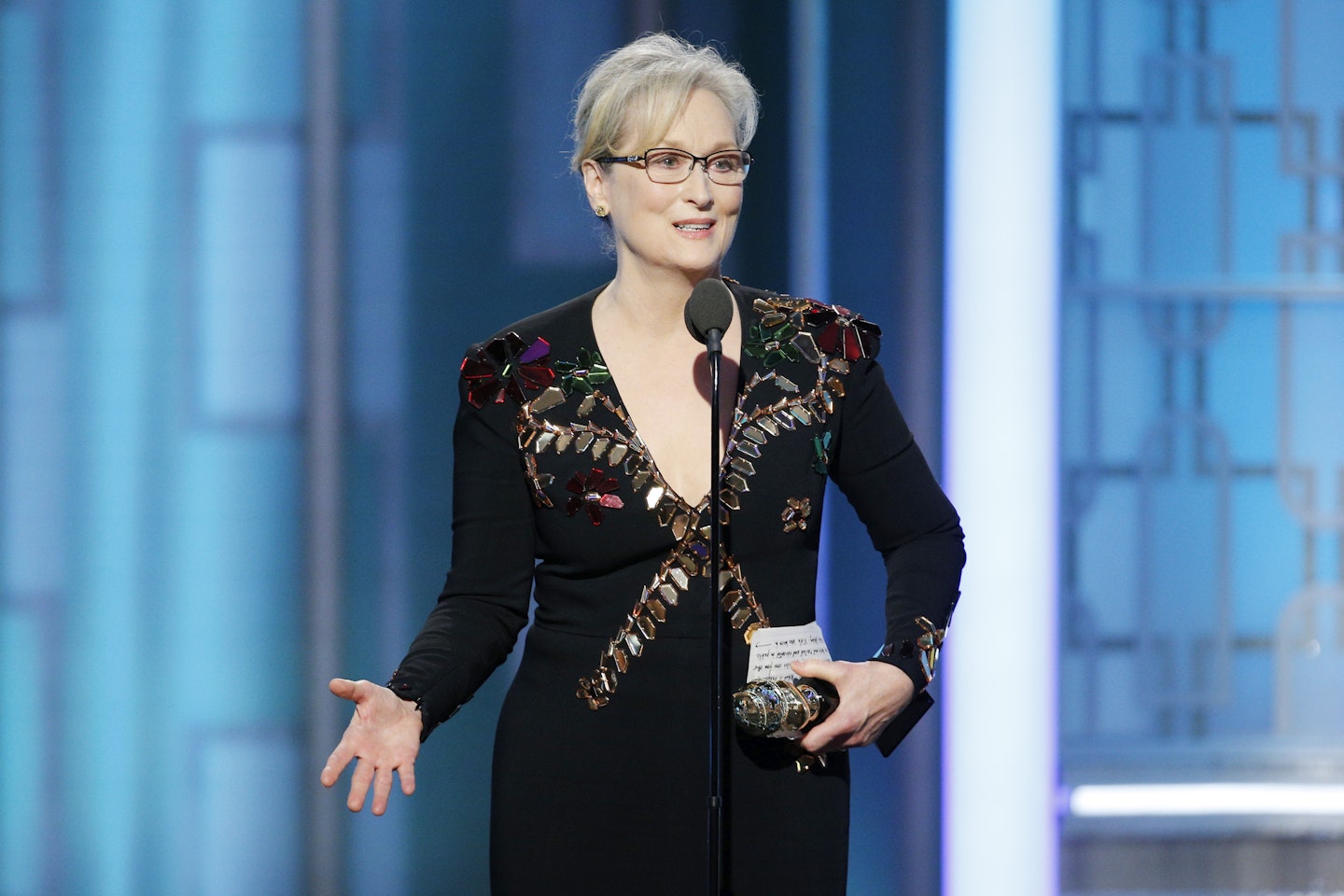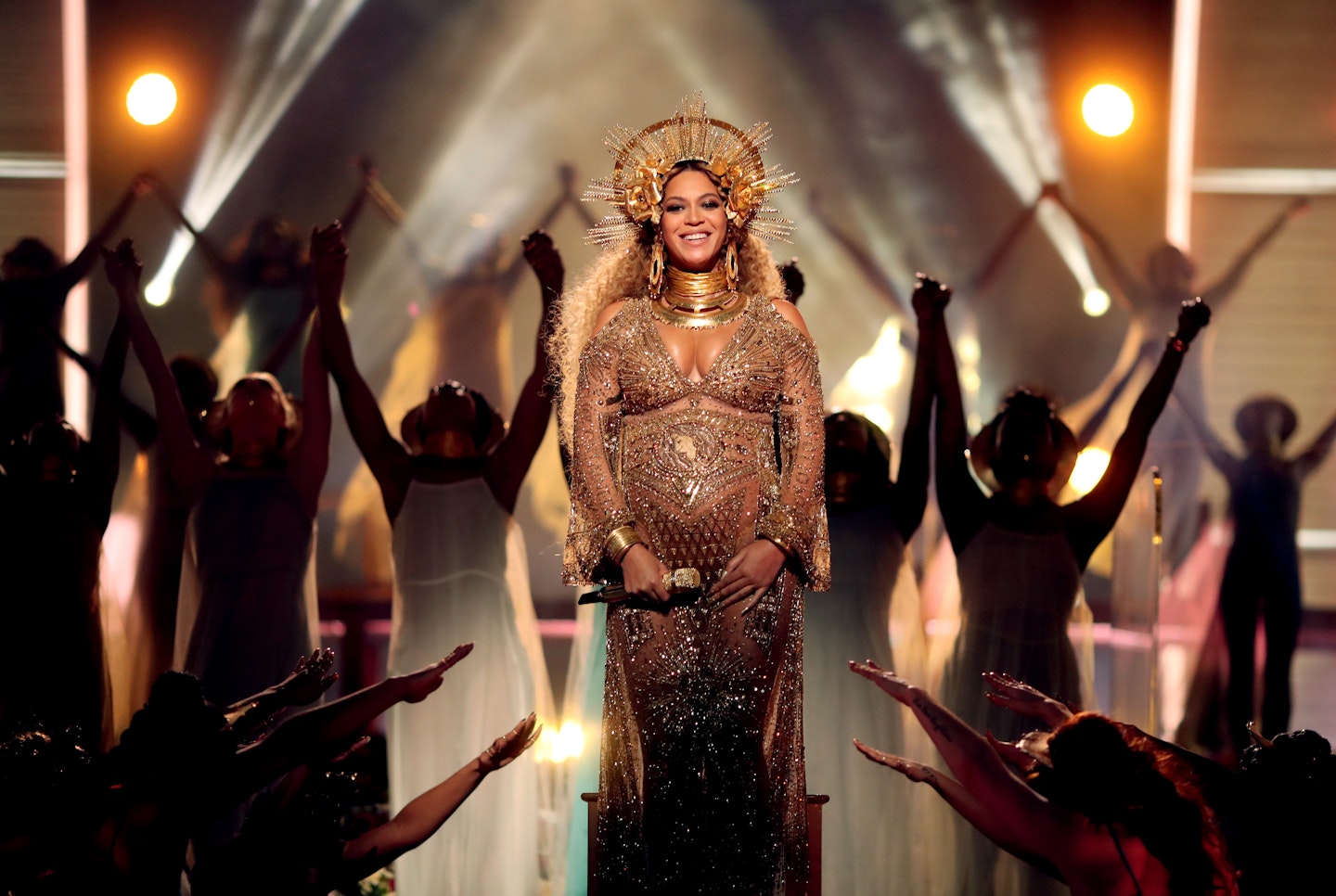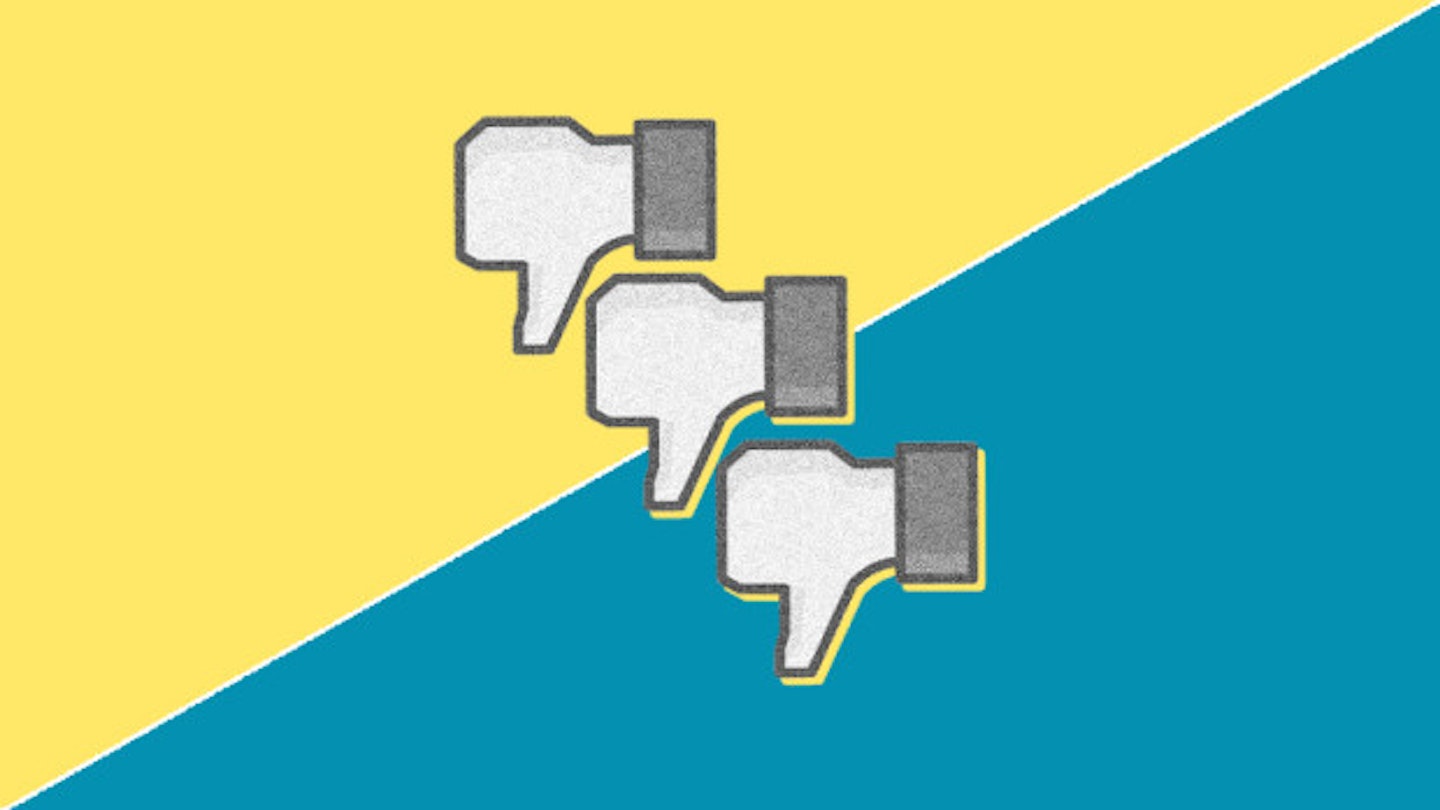After pledging last month to spend 2018 ‘making sure that time spent on Facebook is time well spent’, Mark Zuckerberg has been busy introducing new measures to transform the network into a platform for ‘meaningful social interactions’. So far, he’s introduced a News Feed algorithm that prioritises content from friends and family over that of media and businesses, doubled the number of engineers in London working to ‘remove bad content from the platform’, and started a $10m fund for community groups in an effort to tackle political ‘polarisation’. And now the latest move in Zuckerberg’s quest for a socially-responsible Facebook is a ‘downvote button’, currently being trialled by 5% of English-speaking US Android users.
Facebook’s spokesperson was quick to dispel myths that the new feature is the much-requested ‘dislike button’. Instead, the button is being marketed as ‘a feature for people to give us feedback about comments on public page posts’. Bearing striking similarity to Reddit’s up- and downvoting system, the Facebook button allows users to ‘downvote’ content they find offensive, misleading or inappropriate, demoting it on their newsfeed. Unlike Reddit, however, where unpopular posts gain less visibility on the site as a whole, Facebook’s new feature only effects your individual newsfeed, and there’s no public indicator of which posts receive downvotes. It’s effectively a way for you to censor the content on your own feed.
The button also provides a new way of flagging offensive content to Facebook, prompting further options to report the post for being 'offensive,' 'misleading' or 'off topic' (although we’re not quite sure why going off topic warrants being reported).
READ MORE: Some Of The Most Downloaded Images Of 2017
Debrief Most Downloaded Images on Getty 2017
 1 of 10
1 of 10Mary Berry reacts to winning the Best TV Judge during the National Television Awards
 2 of 10
2 of 10Meryl Streep accepts Cecil B. DeMille Award during the 74th Annual Golden Globe Awards
 3 of 10
3 of 10Hugh Hefner poses at Playboy's 60th Anniversary special event
 4 of 10
4 of 10People run from the Route 91 Harvest country music festival
 5 of 10
5 of 10Announcement Of Prince Harry's Engagement To Meghan Markle
 6 of 10
6 of 10British Prime Minister Theresa May and U.S. President Donald Trump walk along The Colonnade of the West Wing at The White House
 7 of 10
7 of 10Aftermath Of The London Bridge Terror Attacks
 8 of 10
8 of 10Beyonce during The 59th GRAMMY Awards
 9 of 10
9 of 10Lewis Hamilton celebrates with the fans after the Formula One Grand Prix at Silverstone
 10 of 10
10 of 1016th IAAF World Athletics Championships London
Martin Garner, a tech analyst at CCS Insight, has pointed out that allowing users to censor their own feeds is a clever way for Facebook to sidestep the responsibility of making judgements about content. ‘Mark Zuckerberg doesn’t want Facebook to have the responsibility of identifying what is offensive or misleading – and what is not – because that would put him into the position of being a publisher rather than a platform’. While self-serving, however, Zuckerberg’s decision to put these decisions in the hands of users isn’t necessarily a bad thing, and perhaps represents a more democratic and thorough way of reducing the impact of offensive content. The fact that downvoting a post only impacts your own feed could also be seen as a way of reconciling the right to offend with the right to be offended: you can stop yourself seeing the posts of those that offend you, without stripping them of their right to free speech (unless you report them, of course).
In an age in which the fear of causing offense is increasingly privileged over free, open debate, however, there’s something unsettling about this new kind of censorship. Newsfeeds already face criticism for cultivating 'echo chambers' whereby your understanding of the world is informed by a narrow spectrum of views that tend to confirm your own. With this in mind, the ability to further limit your exposure to opinions you disagree with doesn’t feel like a progressive step.
For now, only a small group of Facebook users have access to the downvote feature. Time will tell whether the button will prove a useful tool for reporting offensive content, a way of limiting open debate, or simply another annoying update that we didn’t need.
This article originally appeared on The Debrief.
